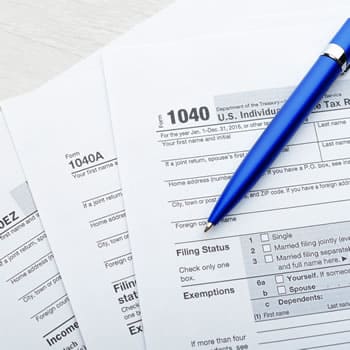What if I Don't Earn an Income? Do I Still File a Tax Return?

If you didn't earn any income in the last tax year, you're not obligated to file a tax return. The IRS has minimum income requirements that change annually based on inflation as well as your tax status, such as single, married filing separately or jointly, head of household, etc. When you fall below the threshold, you are not required to file a federal tax return. There are, however, some good reasons to file even when you earn little or no income.
If you had very low or no income last year and are not required to file, you may wish to file anyway to claim certain refundable tax credits. Refundable tax credits can provide you with a tax refund even when you do not work. For example, you may qualify for the Earned Income Tax Credit or the Additional Child Tax Credit, which are refundable tax credits.
Even if you earned very little last year, you might wish to file a tax return simply to get back any taxes withheld from your pay. This usually happens when a taxpayer is employed for only a small part of the calendar year. Also, if you're attending college or a higher education program and earn little or no income, you may wish to file a return to take advantage of the American Opportunity credit.
If you own a small business or are self-employed, please keep in mind that the rules for you are different. You must file a tax return if you earned more than $400 from self-employment efforts in the last year. There is sometimes taxpayer confusion with this, when a contractor's income level is above $400 but below the threshold that W2 employees are required to file at. For example, you'll need to file and pay self-employment tax if you ran an income-generating website or worked as any sort of independent contractor and received a 1099(s) with at least $400 of earnings during the year.
If you received any health care tax credits or subsidies for the past tax year, you'll need to file to keep receiving them, even if you normally wouldn't be required to file. For more on this please see our article on the Affordable Care Act
If you earned little or no income last year you can likely file your federal return with E-file.com free of charge this year. To take advantage of this simply create an account here, enter your information and let our software do the calculations for you.
Frequently Asked Question
What if I only receive Social Security benefits?
Generally, if Social Security is your only income, you don't need to file a tax return. However, if you have other income that makes your total exceed the filing threshold, you may need to file.
Should I file even if I'm not required to? Yes, you should consider filing if you had federal taxes withheld from your paycheck or if you qualify for refundable credits like the Earned Income Tax Credit. You may receive a refund.
What about self-employment income? You must file a tax return if you have $400 or more in net earnings from self-employment, regardless of your other income.
